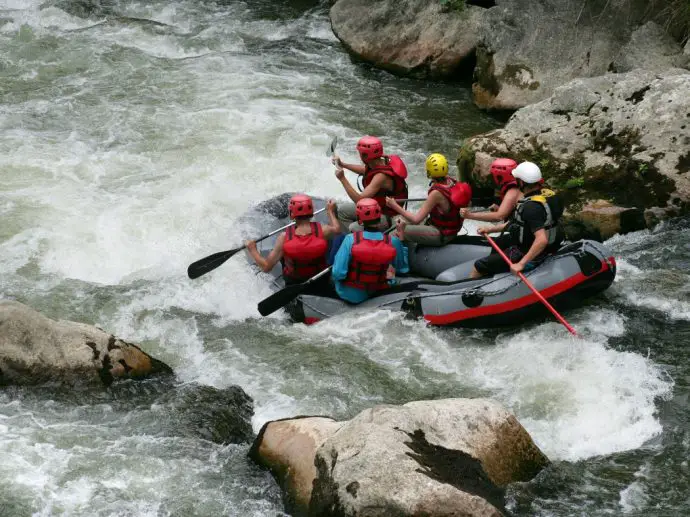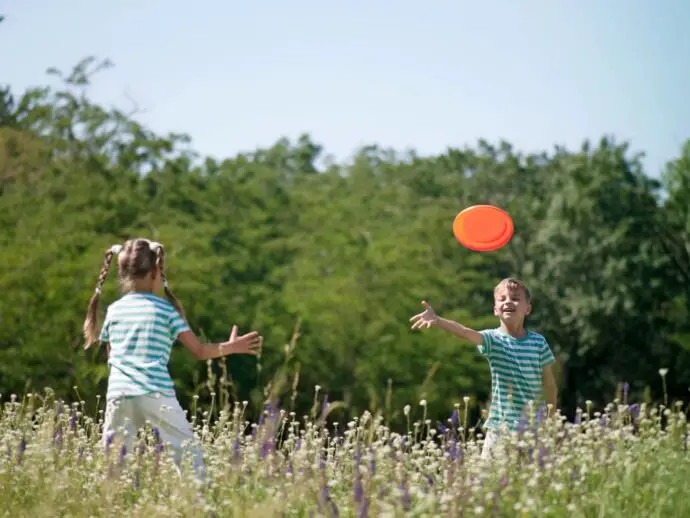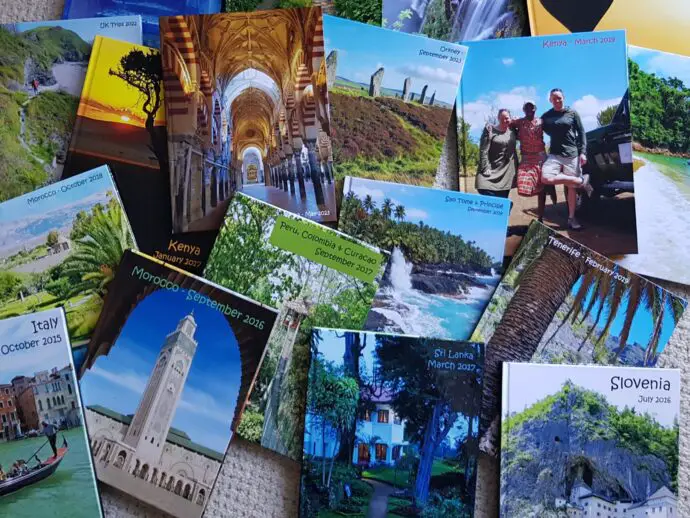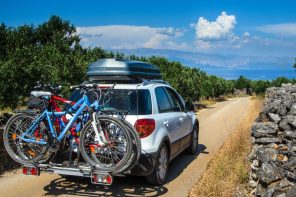We’ve always thought that family holidays can be a fabulous way of making special memories and spending precious time together. Some of our most vivid memories are of childhood trips, where we went camping in the mountains, explored new cities, or zoomed around on the latest roller coaster at our favourite theme parks.
However, travelling with kids of different ages can be a bit of a challenge – we ought to know, as we both had siblings who didn’t always see eye-to-eye with us. As we experienced first-hand growing up, no matter what their age, children often have different interests, energy levels, and needs. Choosing a destination like the Great Smoky Mountains, which offers a range of activities suitable for different age groups, can help alleviate some of these challenges.
However, a successful vacation involves more than just selecting the right destination. In this post we’ll show you how to ensure a stress-free vacation with your family.
1. Plan Ahead
Planning is crucial when traveling with kids of different ages. Start by creating a detailed itinerary that includes activities catering to all age groups. Research your destination and make a list of attractions and activities suitable for everyone. Book accommodations and activities well in advance to avoid last-minute stress and ensure availability.
Additionally, consider the logistics of your trip. Plan your travel routes, rest stops, and meal breaks. If you’re flying, check the airline’s policies on traveling with children. If you’re driving, map out kid-friendly stops along the way. The more you prepare, the smoother your vacation will be.
2. Find an Activity for the Whole Family
One of the keys to a successful family vacation is finding activities that everyone can enjoy together. River rafting, for example, can be a thrilling adventure that appeals to all age groups. It’s an activity that combines excitement, teamwork, and the beauty of nature. Smoky Mountain Outdoors Rafting is the best guide for river rafting in Tennessee. They can guide you on the best type of rafting trip for your family.

When choosing activities, look for those that offer different levels of difficulty or engagement so younger children and teens can participate at their comfort level. Shared experiences like these can strengthen family bonds and create cherished memories. The goal is to find common ground where everyone can have fun together.
3. Pack Smart and Light
Packing efficiently is essential when traveling with kids of different ages. Start by making a comprehensive packing checklist to ensure you don’t forget any essentials. Pack versatile items that can serve multiple purposes, such as clothing that can be layered or used in various weather conditions.
For younger children, pack a bag with snacks and favorite toys. For older kids, include books, games, and activities to keep them occupied during travel. Remember to pack essential items like medications, first aid supplies, and important documents in an easily accessible bag. Packing smart and light will make your trip more manageable and reduce the risk of losing important items.
4. Balance Activities and Downtime
Balancing activities and downtime is crucial for a stress-free vacation. While it’s tempting to fill your itinerary with exciting adventures, it’s important to schedule regular breaks and downtime, especially for younger children. Remember, too much activity can cause problems with youngsters and end up with tantrums and burnout.
Plan your days with a mix of active and relaxing activities. For instance, after a morning of hiking or sightseeing, schedule a relaxing afternoon at the pool or a quiet evening in your accommodations. This balance ensures that everyone stays refreshed and enjoys the vacation without feeling overwhelmed.

5. Snacks and Hydration
Keeping everyone well-fed and hydrated is vital for a smooth vacation. Pack a variety of healthy snacks and water bottles for the journey and daily outings. Frequent snack breaks can help maintain energy levels and moods, especially for younger children.
Choose snacks that are easy to carry and don’t require refrigeration, such as granola bars, fruit, nuts, and crackers. Encourage everyone to drink water regularly, especially during outdoor activities. Staying hydrated is essential for preventing fatigue and ensuring everyone feels their best.
6. Age-Appropriate Entertainment
Keeping children entertained during travel and downtime is crucial for a smooth vacation. Bring along entertainment options suited to different age groups to keep everyone occupied and happy. School-age children might enjoy puzzles, activity books, or handheld gaming devices. Teens could appreciate books, magazines, or their favourite movies and music on a portable device.
While electronic devices can be lifesavers during long travel periods, try to balance screen time with interactive activities that encourage family interaction. Card games, travel-sized board games, and storytelling can be great ways to engage the whole family and create fun memories together.
7. Encourage Flexibility and Patience
Flexibility and patience are so important when you’re holidaying with children of varying ages. Despite the best of intentions and careful planning, sometimes things don’t always go as you hoped. Flights can be delayed, the weather can change, and kids can get tired or cranky. Adopting a flexible mindset can help you handle these challenges more gracefully.
Encourage everyone in the family to be adaptable and patient. Remind them that plans might need to change, and that’s okay. Keeping a positive attitude, even when things go awry, can help maintain a fun and relaxed atmosphere. Being open to spontaneous changes can also lead to unexpected adventures and memorable experiences.
8. Document The Vacation
Documenting your family vacation is a wonderful way to preserve memories. Take plenty of photos and videos throughout the trip. Encourage kids to get involved by giving them a camera or letting them create a travel journal. They can draw pictures, write about their favorite activities, and collect mementos like postcards or pressed flowers.
Creating a scrapbook or photo album after the trip can be a fun family project. It’s a great way to reminisce about the adventures and special moments you shared. Looking back on these memories can strengthen family bonds and inspire future travels.

9. Involve Kids in the Planning
Involving your kids in the planning process can make them feel more invested and excited about the trip. Ask for their input on activities and destinations, and try to include at least one or two of their suggestions in your itinerary. This not only makes them feel valued but also ensures that the trip includes activities that they are genuinely interested in.
For older kids, giving them some responsibility can be empowering. They can help with packing their own bags, navigating with maps or GPS, and planning daily schedules. This involvement can teach them valuable skills and make them more engaged in the vacation experience.
Final Thoughts
Travelling with kids of different ages can seem daunting, but with the right strategies, it can be an incredibly rewarding experience for the whole family. A well-planned family vacation not only creates lasting memories but also strengthens family bonds and provides valuable opportunities for learning and growth. Embrace the adventure, and enjoy the unique experiences that come with exploring new places together as a family.





